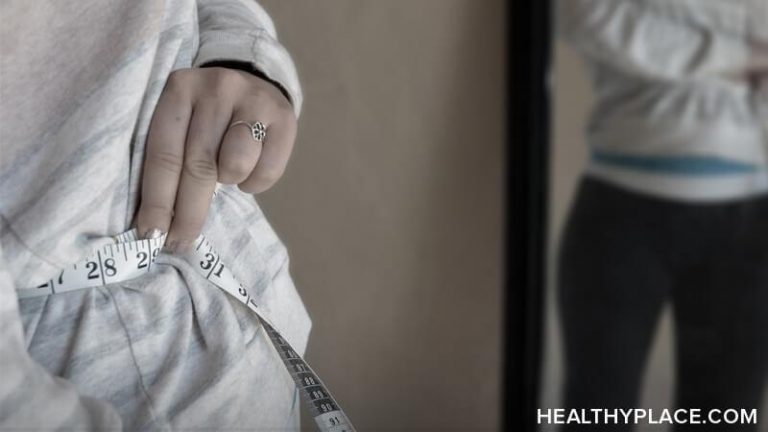Can You Fully Recover from an Eating Disorder?

The last time I thought about bingeing was three weeks ago. It'd been a stressful day, and my mind was screaming for a distraction. The last time I thought about restricting was yesterday morning when I pulled on my jeans and felt their tightness against my calves. It’s been over five years since I started my recovery for bulimia. I consider myself to be "free" from the vicious binge-purge cycle, but disordered thinking sometimes hovers in the background like a ghost. It’s something that I continue to manage, often with acceptance and compassion, sometimes with a tinge of frustration and shame, and always reminding myself that thoughts won’t necessarily lead to actions.
Full Recovery from an Eating Disorder Is Debated
The question of whether people can fully recover from an eating disorder is widely debated. My own beliefs have shifted over time. I once adhered to the notion that healing is an lifelong process, and that we can never really be cured of the disease but can learn to cope with an effective support system.
When I entered into a 12-step program of recovery, it was important for me to accept that I was sick in order to receive help. By abstaining from certain foods (e.g. refined sugar) and disordered behaviors (i.e. dieting, overeating), and never allowing myself to diverge from a strict recovery plan, I was able to slowly build a healthy relationship with food again, one day at a time. I heard other eating disorder survivors who'd been in recovery for years, sometimes decades, still refer to themselves as a "bulimic" or "anorexic", afraid that if they let their guard down for even a moment, the illness might creep back in.
But working within the mental health sector several years later opened me up to a wide spectrum of experiences and perspectives. I met people who were able to free themselves from food and weight obsession, and who considered it both dishonest and discouraging to still think of themselves as “unwell.” Some may call this “complacency", others might concede that it’s entirely possible to recover and move on with your life. Perhaps, eating disorders are not necessarily lifelong conditions for us all, and complete recovery is attainable.
Why I Choose to Recover from My Eating Disorder Daily
At some point in my recovery, I stopped considering myself a "bulimic" and embraced the idea that full recovery from an eating disorder is possible. I stopped following a rigid meal plan and started eating most foods in moderation again, including sugary foods. It took a few years to feel confident enough to give up the crutch that the 12-step program had provided, but it was important for me to start living a balanced life, without being dictated by the need to plan and control every meal.
Since leaving the program, my relationship with food hasn't reverted to how it once was, nor have the challenging thoughts and feelings that accompanied my disorder completely dissipated. The reality of recovery has been far more complex, evolving through various stages.
Today, I have a healthy relationship with food, but I never assume that my judgments about weight are necessarily rooted in reality. I'm always mindful about what and how I eat. I don’t attend group meetings as I once did, but I try to stay in contact with other survivors. There are certain exercises and rituals, like meditation, that help me feel more connected to myself and allow me to practice compassion and acceptance.
There's a common misconception that an eating disorder will persist in some form or another for the rest of your life, which can be extremely unhelpful for many survivors. While some may have to remain vigilant about preventing relapse, it's unequivocally possible to let go of the illness. The first step is to tell someone and the second step is to get help. My personal journey is a long-term commitment, but recovery from an eating disorder looks different for everyone just as the disease presents itself in various forms.
APA Reference
Redif, Z.
(2019, May 8). Can You Fully Recover from an Eating Disorder?, HealthyPlace. Retrieved
on 2026, March 5 from https://www.healthyplace.com/blogs/survivinged/2019/5/can-you-fully-recover-from-an-eating-disorder